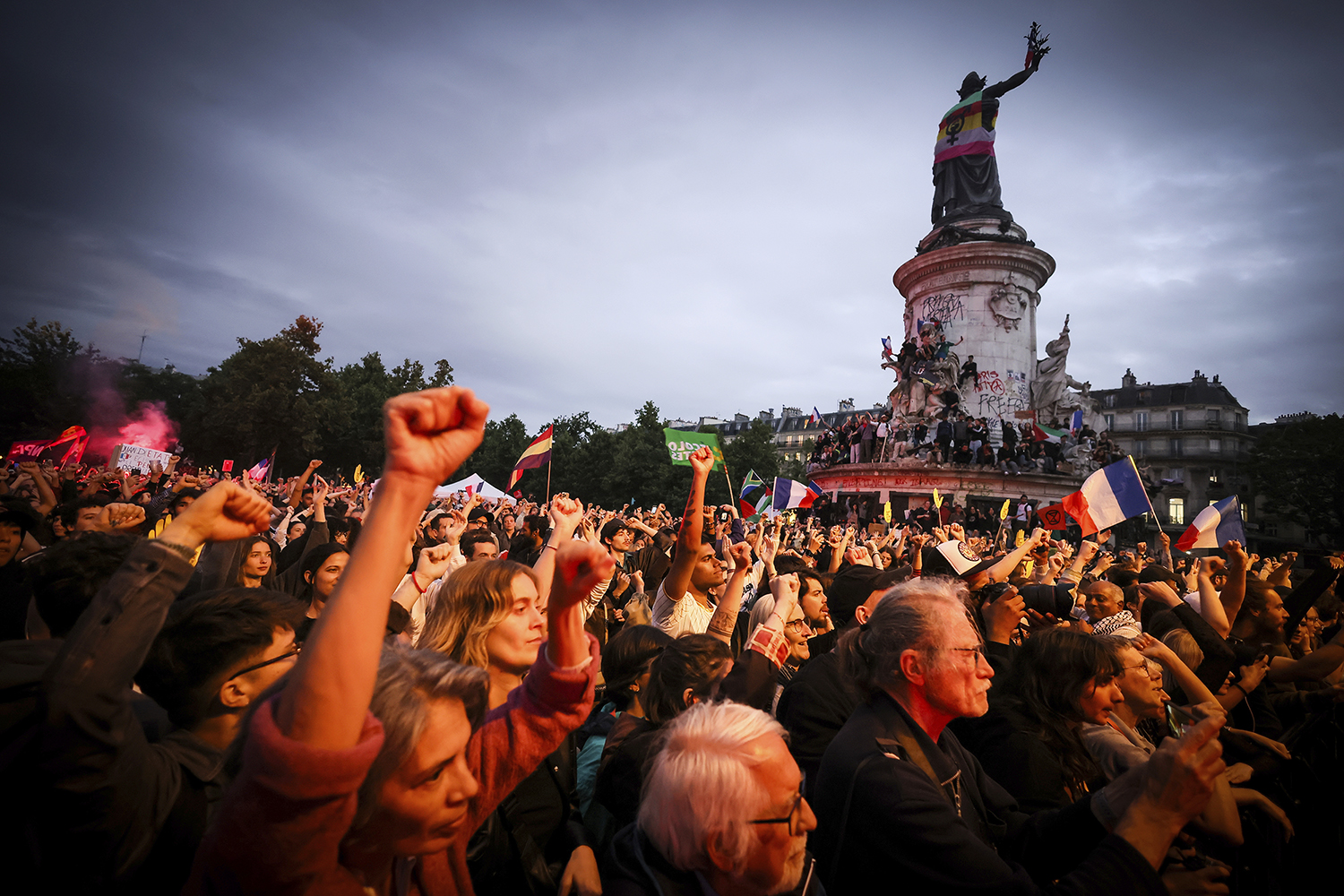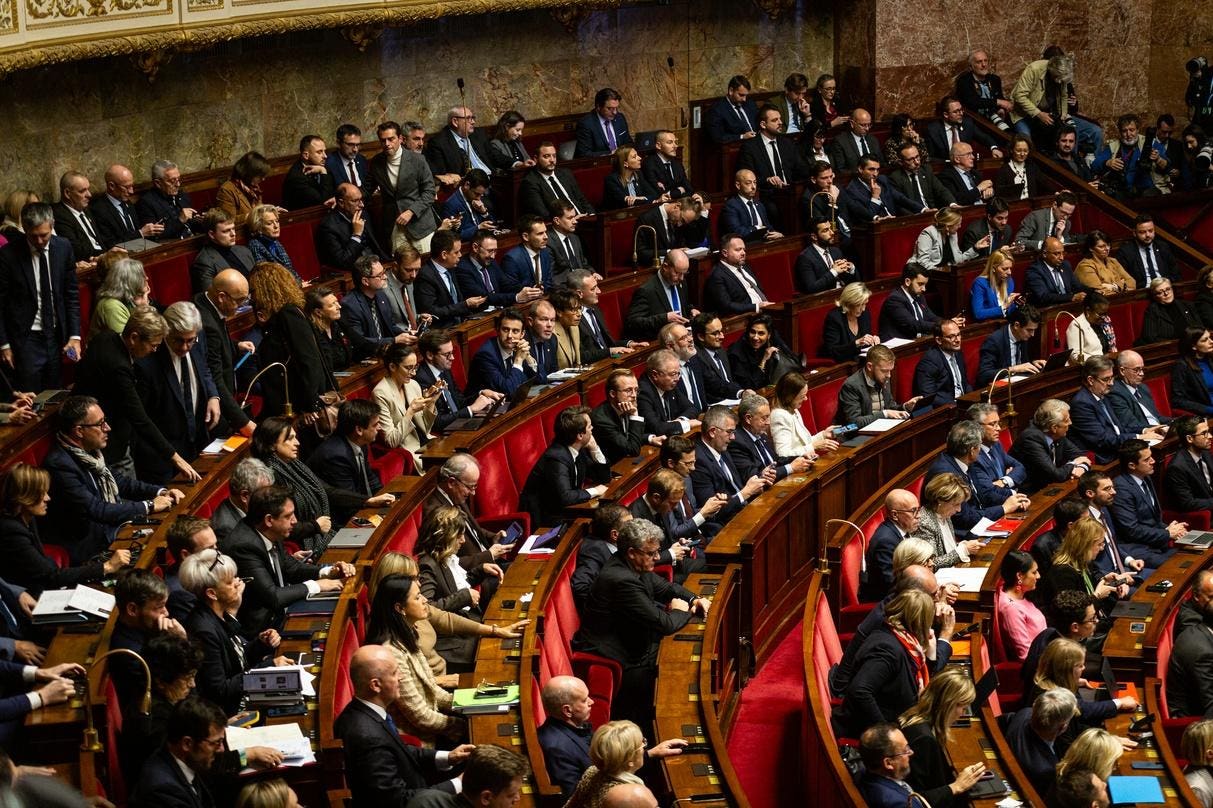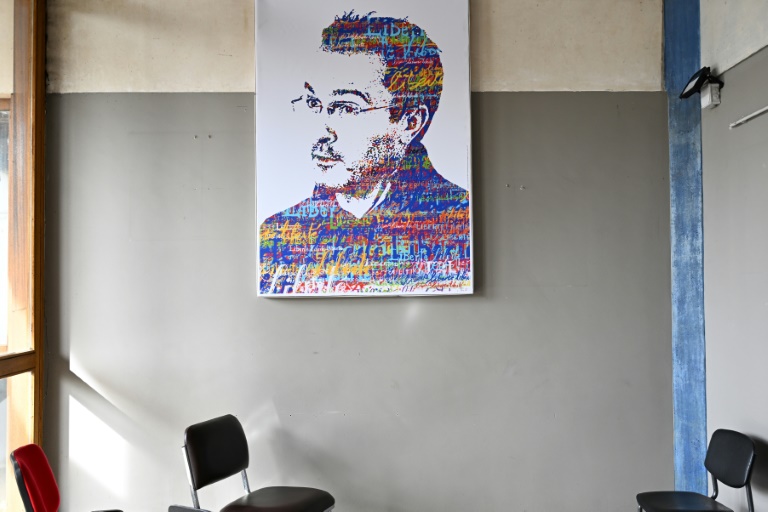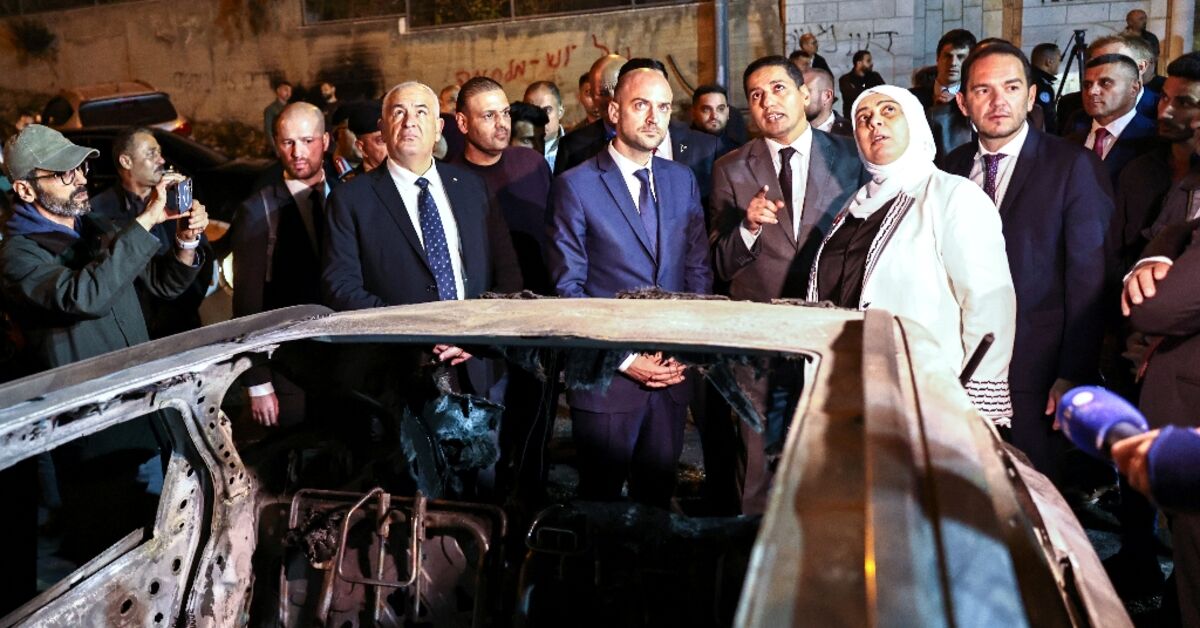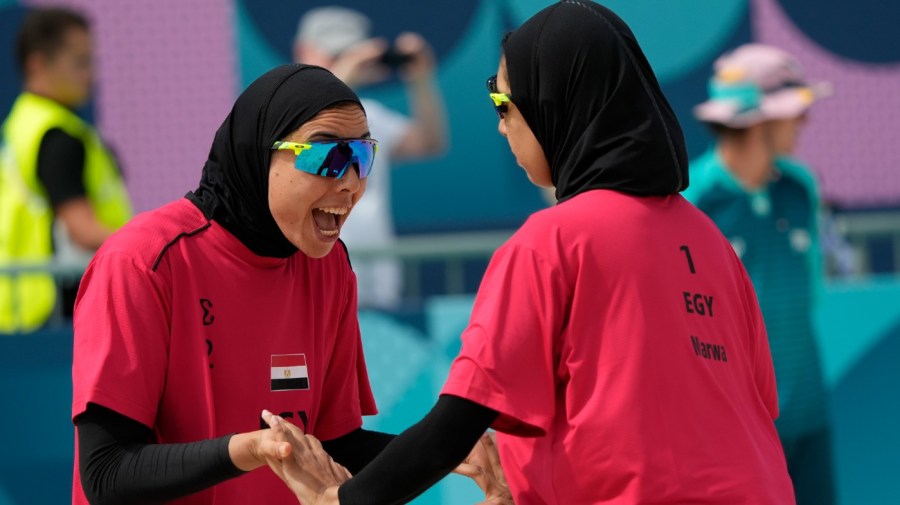PARIS (RNS) — On Wednesday (July 3), five days before the second and decisive round of parliamentary elections in France, in which the populist National Rally Party is on track to win a majority, leaders of the French Muslim community gathered in Paris’ Grand Mosque to call for massive voter mobilization against what they called an existential threat to the country’s political institutions.
“We are standing firm against the project of the National Rally, against its ideology, its roots and its origins, which we haven’t forgotten,” said Chems-Eddine Hafiz, a Franco-Algerian lawyer and rector of Paris’ Grand Mosque since 2020. “These past few years, the party’s project has revolved around the invention of a public enemy: the Muslim citizen.”
Kamel Kabtane, the rector of Lyon’s Grand Mosque, said a victory for the far right would have “devastating consequences” for the community. In a recent op-ed published in Le Monde, Kabtane said the risk to the Muslim community has never been higher, arguing that a National Rally victory would make Muslim citizens feel that a target had been put on their backs.
You may be interested
Long considered a fringe party, the National Rally’s leader, Marine Le Pen, has made great efforts to make the party more palatable and accepted in French politics in the two decades since she took over from her father in 2011, party founder Jean-Marie Le Pen, with whom she cut ties for his controversial remarks about the Holocaust.
Still, the party’s core values remained centered around nationalism and xenophobia, and its proposed policies focus on straitening immigration rules. The younger Le Pen has made plain her desire to ban the wearing of hijab — Muslim women’s head coverings — from public spaces and prohibit the distribution of halal goods, though she recently declared that no Muslim citizens would be stripped of their rights if her party won the elections.
FILE – French President Emmanuel Macron, left, talks to German Chancellor Olaf Scholz as they watch a skydiving demo during the G7 world leaders summit at Borgo Egnazia, Italy, on June 13, 2024. The German government has expressed concern about a possible victory of the far-right National Rally in France. Chancellor Scholz and many ordinary Germans fear that if the nationalist French party gets elected on Sunday, it would no longer support the close and unique relationship between the two countries that was carefully built over decades since the end of World War II. (AP Photo/Luca Bruno)
The party’s growing mainstream acceptance was demonstrated when it made large gains in the elections for the European parliament on June 9. Following that vote, President Emmanuel Macron called the snap parliamentary elections, surprising the public and political observers alike by his decision to turn to the ballot just as far-right support, not only in France but across Europe, seems to be hitting an all-time high.
The president appears to be betting that voters will again stand by him as they did in the presidential run-off of 2017 and 2022, when surges by Le Pen gave voters a stark choice between the far-right and his technocratic centrist party, and Macron prevailed.
In last week’s first round of voting, the National Rally drew 33% of the votes, followed by the New Popular Front, an alliance of left-wing political parties, at 28%, and Macron’s Ensembles with 22%. The split prevented National Rally from gaining the 289 seats needed to obtain an absolute majority.
If these results hold in the second round on Sunday, Macron would be compelled to nominate a prime minister from National Rally. A recent Harris interactive poll estimated that the far-right could only obtain between 190 and 220 seats.
French Muslims, who have been targeted by the far-right for the past decade, are holding their breath. “I’m saddened to see France in this situation, a country attached to liberty, equality and fraternity, to see its founding principles corrupted like this,” Kabtane told Religion News Service.
A Franco-Algerian who has lived in France for 50 years, he said the climate has never been so hostile to Muslims. He recalled the numerous political and administrative hurdles he faced in 1976, when he first established Lyon’s Grand Mosque. He said it would be impossible to found the mosque today.
According to an IFOP survey taken for magazine La Croix, 41% of French Muslims participated in the European election, a huge turnout for French Muslims, with 62% casting a ballot for the left-wing list of the Unbowed Party.
On June 28, two days before the first round of the European elections, Lyon’s Grand Mosque urged French Muslims to vote. “Voting is not only authorized in Islam but also prescribed,” read a statement signed by various Muslim organizations published on the mosque’s website. “In a situation where abstention benefits extremists who are obsessed about Islam and Muslims, it can even become an obligation.”
Kabtane argued that the community’s mobilization in the recent elections shows the widespread concern among Muslims. “People are worried for the future of their children. They are wondering, will they have the right to practice freely tomorrow?”
If National Rally wins, Kabtane said he expects the closure of many mosques and Islamic schools, the deportation of foreign imams and stricter bans on wearing hijab. Since 2004, hijabs, along with all “conspicuous religious symbols,” have been banned in public schools, upholding the value the French place on secularism, or “laicité.”
In its 2024 report on the state of human rights in the world, Amnesty International expressed alarm about the level of religious discrimination in France, which disproportionately affects Muslim women wearing a veil. In 2022, the European group against islamophobia, CCIE, counted 501 anti-Muslim incidents in France, the majority targeting Muslim women.
After Sunday’s election, Kabtane fears the country will witness an unleashing of islamophobia and less public outcry.
“Will we be able to protect ourselves like we have the possibility to today? Will we be considered second-class citizens?” he asked.

